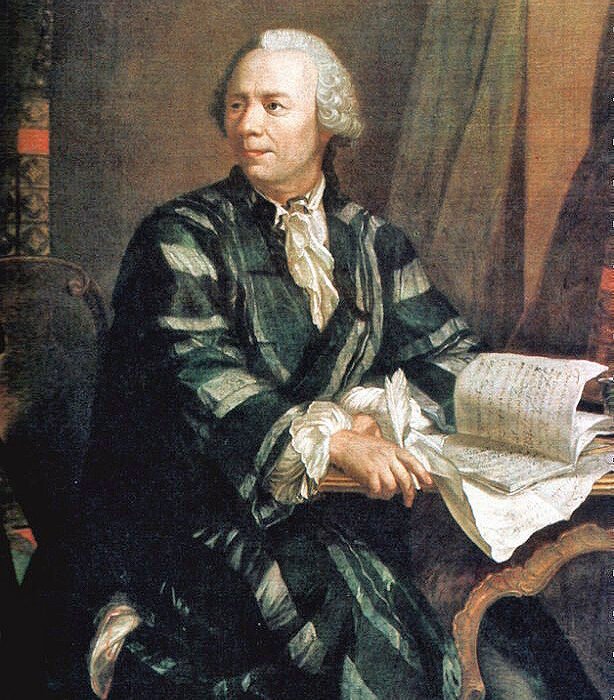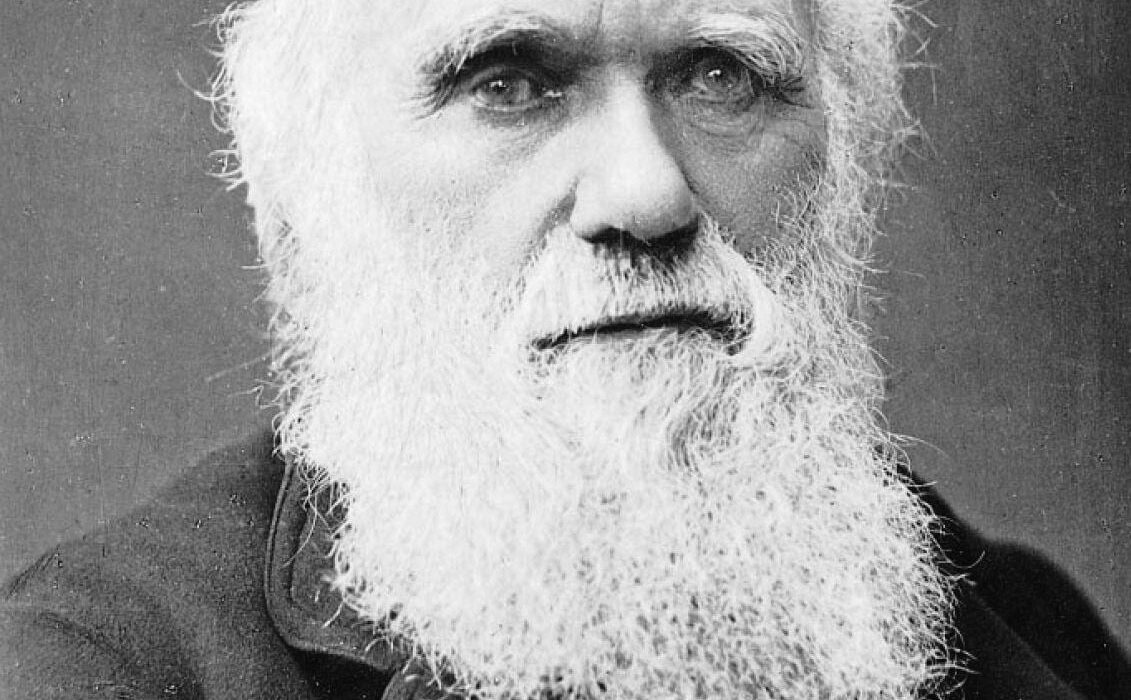Paul the Apostle, originally known as Saul of Tarsus, was a pivotal figure in the early Christian Church and one of Christianity’s most influential missionaries. Born around 5 CE in Tarsus, a city in modern-day Turkey, Paul was initially a zealous Pharisee who persecuted early Christians. However, after a dramatic conversion experience on the road to Damascus, he became a devout follower of Jesus Christ. Paul’s extensive missionary journeys across the Roman Empire, coupled with his theological writings, played a crucial role in spreading Christianity beyond its Jewish roots to Gentile communities. His epistles, which form a significant portion of the New Testament, address key doctrinal issues and offer guidance to early Christian congregations. Paul’s teachings on faith, grace, and salvation by Christ have profoundly shaped Christian theology and continue to influence the beliefs and practices of millions around the world.
Early Life and Background
Paul the Apostle, originally named Saul of Tarsus, was born around AD 5 in the city of Tarsus, located in present-day Turkey. Tarsus was a significant city in the Roman province of Cilicia, known for its cultural diversity and vibrant intellectual life. Saul’s family was devoutly Jewish, belonging to the tribe of Benjamin. His father was a Pharisee, a member of a strict Jewish sect known for its zealous adherence to the Mosaic Law. This Pharisaic background would deeply influence Saul’s early life, imbuing him with a strong commitment to Jewish traditions.
Being born a Roman citizen—a privilege not easily attained by non-Romans—Saul enjoyed certain legal protections and social advantages. His Roman citizenship, combined with his Jewish heritage, uniquely positioned him to bridge the two cultures. Saul was also well-educated; he studied under the renowned rabbi Gamaliel in Jerusalem, where he was rigorously trained in Jewish law and scripture. This education made him a formidable scholar and a passionate defender of Judaism.
During his early years, Saul was known for his fervent opposition to the nascent Christian movement, which he viewed as a dangerous heresy. His zeal for the Jewish faith led him to become a key figure in the persecution of Christians. Saul’s hostility towards Christians was rooted in his belief that they were blasphemers who undermined the sanctity of the Jewish religion. This period of his life was marked by a relentless pursuit of Christians, whom he sought to imprison and even kill.
Saul’s early life, therefore, was characterized by a deep commitment to Judaism, a strong sense of identity as both a Jew and a Roman, and an unyielding opposition to Christianity. His background as a Pharisee and his education under Gamaliel provided him with the intellectual tools and religious fervor that would later define his ministry, albeit in a radically transformed way.
Conversion on the Road to Damascus
The turning point in Saul’s life came around AD 33-36 when he was on his way to Damascus to arrest Christians. According to the New Testament book of Acts, as Saul neared Damascus, a bright light from heaven suddenly flashed around him. He fell to the ground and heard a voice saying, “Saul, Saul, why do you persecute me?” When Saul asked who was speaking, the voice replied, “I am Jesus, whom you are persecuting.” This encounter left Saul blind, and he was led by his companions into Damascus, where he remained sightless for three days, neither eating nor drinking.
This extraordinary event marked the beginning of Saul’s transformation from a persecutor of Christians to one of Christianity’s most ardent advocates. In Damascus, a Christian disciple named Ananias, guided by a vision from God, visited Saul. Ananias laid his hands on Saul, and something like scales fell from Saul’s eyes, restoring his sight. Saul was then baptized, taking the name Paul, symbolizing his new identity and mission.
Paul’s conversion was not merely a change of belief but a profound transformation of his entire being. The once fervent persecutor of Christians now became a devoted follower of Christ. This radical change astonished both the Jewish community, who knew of his former zeal, and the Christian community, who were initially wary of his intentions. Paul’s conversion is considered one of the most significant events in Christian history, as it not only altered the course of his life but also profoundly influenced the spread of Christianity.
After his conversion, Paul spent time in Arabia before returning to Damascus. He then went to Jerusalem to meet with the apostles, particularly Peter and James, the brother of Jesus. Despite their initial skepticism, the apostles recognized Paul’s genuine conversion and accepted him as a fellow apostle. Paul’s experience on the road to Damascus became the foundation of his apostolic mission and the central theme of his preaching—the transformative power of Christ’s grace.
Early Ministry and Missionary Journeys
Following his conversion, Paul dedicated himself to spreading the message of Jesus Christ. His ministry began in earnest in the early 40s AD when he embarked on a series of missionary journeys that would take him across the Roman Empire. Paul’s first missionary journey, undertaken with Barnabas and John Mark, took him to Cyprus and the regions of Asia Minor, including Pisidia, Lycaonia, and Pamphylia. During this journey, Paul and Barnabas faced significant opposition from both Jews and Gentiles, but they also saw many converts, particularly among the Gentiles.
Paul’s approach to evangelism was revolutionary. Unlike other early Christian leaders who primarily focused on Jewish communities, Paul felt called to preach to the Gentiles. He believed that the message of Jesus was universal and should be available to all, regardless of their ethnic or religious background. This conviction often put him at odds with other Jewish Christians, leading to tensions within the early Church. The question of whether Gentile converts needed to observe Jewish laws, such as circumcision, became a significant point of contention.
To address these issues, Paul participated in the Council of Jerusalem around AD 49. The council, which included key leaders like Peter and James, debated the requirements for Gentile converts. Paul argued passionately that faith in Jesus, not adherence to the Mosaic Law, was the basis for salvation. The council ultimately sided with Paul, deciding that Gentile converts did not need to follow all Jewish customs, which was a decisive moment in the history of the early Church.
Paul’s second missionary journey, which began around AD 50, was even more extensive. This time, he traveled with Silas, Timothy, and later Luke, visiting cities such as Philippi, Thessalonica, Berea, Athens, and Corinth. In each city, Paul preached in synagogues and public places, engaging both Jews and Gentiles in discussions about Jesus. Despite facing persecution and imprisonment, particularly in Philippi and Thessalonica, Paul’s efforts resulted in the establishment of several Christian communities.
Paul’s third missionary journey, around AD 53-57, focused on strengthening the churches he had founded and addressing theological issues within the Christian community. During this journey, Paul spent a significant amount of time in Ephesus, where he encountered strong opposition from those who profited from the worship of the goddess Artemis. Despite the challenges, Paul’s time in Ephesus was fruitful, and the Christian community there grew rapidly.
Theological Contributions and Letters
Paul’s theological contributions are among the most significant in Christian history. His letters, known as epistles, form a substantial part of the New Testament and have profoundly influenced Christian doctrine and practice. Written to various Christian communities and individuals, these letters address a wide range of topics, including theology, ethics, and church governance. They also offer insights into Paul’s thoughts on the nature of Christ, salvation, grace, and the role of the law.
One of Paul’s central theological themes is justification by faith. In his letter to the Romans, Paul argues that humans are justified, or made righteous, not by their works or adherence to the law, but by faith in Jesus Christ. This concept was revolutionary, as it shifted the focus from a works-based religion to one centered on faith and grace. Paul’s emphasis on faith over works was instrumental in shaping Christian theology, particularly during the Protestant Reformation, where it became a cornerstone of Reformed doctrine.
Another significant theme in Paul’s writings is the concept of the body of Christ. In his letters to the Corinthians and Ephesians, Paul describes the Christian community as a single body with many parts, each with its unique function. This metaphor highlights the unity and diversity within the Church, emphasizing that all members, regardless of their background or status, are equal in Christ. Paul’s vision of the Church as a unified body has had a lasting impact on Christian ecclesiology and the understanding of the Church’s nature and mission.
Paul also addressed practical issues facing the early Christian communities. In his letters, he offered guidance on matters such as marriage, sexual morality, and the role of women in the Church. His teachings on these topics have been the subject of much debate and interpretation over the centuries. For instance, Paul’s instructions on women’s roles have been variously understood, with some interpreting them as restrictive and others as reflective of the cultural context of his time.
Paul’s letters also reveal his deep personal struggles and his unwavering commitment to his mission. In the letter to the Galatians, for example, Paul passionately defends his apostolic authority and the gospel he preaches against those who sought to undermine it. His letters to the Corinthians show his concern for the divisions and moral issues within the community, while his letter to the Philippians reflects his joy and gratitude despite being imprisoned.
Imprisonment and Trials
Paul’s missionary activities and his outspoken stance on the inclusion of Gentiles in the Christian faith brought him into conflict with both Jewish and Roman authorities. His teachings, particularly his rejection of the necessity of observing Jewish law for salvation, angered many Jewish leaders who saw him as a threat to their traditions. Additionally, Paul’s success in converting Gentiles led to economic disruptions in cities where the local economy was tied to pagan worship, resulting in hostility from those who felt their livelihoods were threatened.
Around AD 57, during his final visit to Jerusalem, Paul was arrested by the Roman authorities. His arrest came after a group of Jews accused him of bringing Gentiles into the Temple, a serious violation of Jewish law. A riot ensued, and Paul was seized by the Roman commander in Jerusalem to prevent his lynching. Paul was then taken into custody, and when he declared his Roman citizenship, he was granted certain legal protections, including the right to a fair trial.
Paul’s imprisonment marked the beginning of a series of trials that would last several years. He was initially held in Caesarea for two years, where he was tried before the Roman governors Felix and Fest us. During his trial before Felix, Paul defended himself against the charges brought by the Jewish leaders, asserting that he had not violated Jewish law or desecrated the Temple. Felix, however, kept Paul in custody, hoping for a bribe to secure his release. When Festus succeeded Felix as governor, Paul’s case was reexamined. Festus, wanting to appease the Jewish leaders, suggested that Paul be sent to Jerusalem for trial. Knowing that this would likely lead to his death, Paul invoked his right as a Roman citizen to appeal to Caesar. This appeal set in motion a journey that would take Paul to Rome.
Before being sent to Rome, Paul had the opportunity to present his case before King Agrippa II, a ruler well-versed in Jewish customs and laws. In this hearing, Paul recounted his conversion experience and the mission he believed God had given him. Agrippa, while not convinced of Paul’s guilt, stated that Paul could have been released had he not appealed to Caesar. Nevertheless, Paul’s appeal meant that he would be sent to Rome to stand trial before the emperor.
The journey to Rome was fraught with danger. Paul and other prisoners were placed on a ship bound for Italy, but the voyage was delayed by bad weather. As the ship attempted to sail through the Mediterranean, it encountered a severe storm that lasted for two weeks. Despite the ship’s crew losing hope, Paul remained confident, having received a divine assurance that he and all aboard would survive. Eventually, the ship was wrecked on the island of Malta, where the passengers spent the winter before continuing to Rome.
Upon arrival in Rome, Paul was placed under house arrest, though he was allowed to live in a rented house rather than a prison. During this time, he was permitted to receive visitors and continued his ministry, preaching the gospel and writing letters to various Christian communities. Paul’s house arrest in Rome lasted for two years, during which he wrote some of his most influential epistles, including those to the Philippians, Colossians, Ephesians, and Philemon. These letters, often referred to as the “Prison Epistles,” reflect Paul’s deep theological insights and his concern for the well-being of the Christian communities he had established.
Paul’s appeal to Caesar, the exact outcome of which is not detailed in the New Testament, marks the last phase of his recorded life. Tradition holds that Paul was eventually martyred in Rome, likely under the reign of Emperor Nero. While the details of his death are not definitively known, it is generally believed that Paul was beheaded, a form of execution reserved for Roman citizens. Paul’s willingness to face imprisonment and death for his faith exemplifies his unwavering commitment to his mission and his belief in the message of Jesus Christ.
Legacy and Influence
Paul’s legacy is vast and enduring, shaping the development of Christianity in profound ways. His letters, which make up a significant portion of the New Testament, have been foundational to Christian theology, influencing doctrines on salvation, grace, and the nature of the Church. Paul’s emphasis on justification by faith, as articulated in his letter to the Romans, became a cornerstone of Protestant theology during the Reformation, particularly in the teachings of Martin Luther and John Calvin. The idea that salvation is a gift of grace, received through faith rather than earned by works, has resonated across centuries and denominations.
Paul’s vision of a universal Church, one that transcends ethnic and cultural boundaries, played a crucial role in the spread of Christianity beyond its Jewish roots. His missionary journeys established Christian communities throughout the Roman Empire, laying the groundwork for the Church’s expansion into Europe and beyond. Paul’s insistence that Gentile converts did not need to adhere to Jewish law allowed Christianity to emerge as a distinct faith, open to all people regardless of their background. This inclusivity has been central to Christianity’s global appeal.
Theologically, Paul’s writings have provided a rich source of reflection and debate within the Church. His teachings on topics such as the nature of Christ, the role of the Holy Spirit, and the relationship between law and grace have been the subject of extensive theological discourse. Paul’s concept of the “body of Christ” as a metaphor for the Church has deeply influenced Christian ecclesiology, emphasizing the unity and diversity of the Christian community. His understanding of the Church as a living organism, with Christ as its head, continues to shape Christian thought on the nature and mission of the Church.
Paul’s influence extends beyond theology. His letters offer insights into the social and moral challenges faced by early Christians, addressing issues such as marriage, sexual ethics, and the role of women. While some of Paul’s teachings, particularly those on women’s roles, have sparked controversy and differing interpretations, they have nonetheless been pivotal in shaping Christian ethics and practice. Paul’s writings have also had a significant impact on Western thought, contributing to discussions on human nature, freedom, and morality.
In addition to his theological contributions, Paul’s life serves as a powerful example of transformation and devotion. His dramatic conversion from a persecutor of Christians to a devoted apostle underscores the transformative power of faith. Paul’s willingness to endure persecution, imprisonment, and ultimately martyrdom for the sake of his mission has inspired countless Christians throughout history. His life story, marked by unwavering commitment to his calling, continues to be a source of inspiration for those seeking to live out their faith with conviction.
Controversies and Criticisms
Despite his immense influence, Paul has also been a figure of controversy within and outside the Christian tradition. His teachings on the law, women, and ethics have been the subject of intense debate, both in his own time and in the centuries since. One of the major controversies during Paul’s ministry was his stance on the Mosaic Law. Paul’s insistence that Gentile converts were not bound by Jewish law, particularly the practice of circumcision, was a major point of contention within the early Church. This issue was central to the Council of Jerusalem, where Paul’s views ultimately prevailed, but not without causing significant tension among Jewish Christians.
Paul’s teachings on women have been particularly controversial. In several of his letters, Paul appears to advocate for a subordinate role for women in the Church, instructing them to be silent during worship and to submit to their husbands. These passages, particularly those in the letters to the Corinthians and Timothy, have been interpreted by some as restrictive and patriarchal. However, others argue that these teachings must be understood within their historical and cultural context and that Paul’s broader ministry included significant roles for women. For instance, Paul refers to several women as his co-workers in the gospel, including Phoebe, who is described as a deacon, and Priscilla, who, along with her husband Aquila, was a prominent teacher in the early Church.
Another area of criticism concerns Paul’s relationship with the other apostles, particularly Peter. The New Testament records several instances of tension between Paul and the Jerusalem apostles, particularly over the issue of Gentile inclusion. In his letter to the Galatians, Paul recounts a public confrontation with Peter in Antioch over Peter’s withdrawal from eating with Gentile Christians. This incident, known as the “Incident at Antioch,” highlights the differences in approach between Paul and the other apostles and has led some scholars to speculate about deeper divisions within the early Church.
In modern times, Paul’s teachings have also been critiqued from various perspectives, including feminist, liberation, and queer theologies. Critics argue that some of Paul’s writings have been used to justify oppressive practices, such as the subjugation of women or the exclusion of LGBTQ+ individuals from full participation in the Church. These criticisms have sparked ongoing debates about how to interpret Paul’s writings in a way that is faithful to their original intent while being relevant to contemporary ethical concerns.
Despite these controversies, Paul remains a central figure in Christian theology and history. His writings continue to be studied, debated, and interpreted by scholars and believers alike. The complexities and challenges of Paul’s legacy underscore the dynamic and multifaceted nature of his contribution to Christianity. Whether viewed as a radical reformer, a theological innovator, or a controversial figure, Paul’s impact on the development of Christian thought and practice is undeniable.
Paul in the New Testament and Later Traditions
Paul’s life and teachings are extensively documented in the New Testament, particularly in the Acts of the Apostles and his own epistles. The Acts of the Apostles, traditionally attributed to Luke, provides a narrative of Paul’s missionary journeys, his interactions with the apostles, and his trials. Acts portrays Paul as a dynamic and determined figure, guided by the Holy Spirit in his mission to spread the gospel to the Gentiles. The book emphasizes Paul’s role as the “Apostle to the Gentiles,” highlighting his tireless efforts to establish Christian communities across the Roman Empire.
Paul’s epistles, which include letters to the Romans, Corinthians, Galatians, Ephesians, Philippians, Colossians, Thessalonians, Timothy, Titus, and Philemon, are central to the New Testament. These letters offer a window into Paul’s theology, his pastoral concerns, and his relationships with the Christian communities he founded. The epistles are not only theological treatises but also practical guides for Christian living, addressing specific issues faced by the early Church. They provide insights into the challenges of maintaining unity, dealing with moral issues, and understanding the implications of the gospel for everyday life.
Beyond the New Testament, Paul’s influence is evident in later Christian traditions. Early Church Fathers, such as Augustine, drew heavily on Paul’s writings in their theological formulations. Augustine’s doctrine of original sin, for example, is rooted in Paul’s teachings on human nature and sin, particularly in the letter to the Romans. Paul’s ideas also shaped the development of Christian doctrine during the early ecumenical councils, particularly in discussions on the nature of Christ and the Trinity.
In the medieval period, Paul’s writings were central to the theological developments of the time. The medieval Church viewed Paul as a model of monastic discipline and a key source for understanding Christian doctrine. His writings were widely studied and cited by theologians such as Thomas Aquinas, whose Summa Theologica includes extensive references to Paul’s epistles. Paul’s teachings on grace, faith, and the sacraments influenced the development of medieval scholasticism and contributed to the formation of the Church’s sacramental theology.
The Protestant Reformation marked a significant turning point in the interpretation of Paul. Martin Luther’s reading of Paul’s letter to the Romans led to his doctrine of justification by faith alone (sola fide), which became a cornerstone of Protestant theology. Luther’s emphasis on Paul’s teachings about grace and faith challenged the Catholic Church’s views on salvation and sparked a theological revolution. John Calvin, another key figure of the Reformation, also drew heavily on Paul’s writings, particularly in his doctrine of predestination. For the Reformers, Paul was not just an apostle but the primary expositor of the gospel message, whose writings offered a direct path to understanding Christian faith.
In the modern era, Paul’s letters continue to be a focal point for theological and scholarly debate. His writings have been examined through various lenses, including historical-critical, feminist, liberation, and postcolonial approaches. The historical-critical method, which seeks to understand the context and authorship of biblical texts, has led to debates about the authenticity of certain Pauline epistles. While seven of Paul’s letters are universally accepted as authentic, others, such as the Pastoral Epistles (1 and 2 Timothy, Titus), are sometimes viewed as later compositions by followers of Paul.
Feminist scholars have re-examined Paul’s writings to uncover the roles of women in the early Church, challenging traditional interpretations that have marginalized women. Some have argued that Paul’s teachings, when read in their historical context, reveal a more inclusive vision of gender roles than previously understood. Liberation theologians have engaged with Paul’s emphasis on freedom in Christ, using his teachings to advocate for social justice and the liberation of oppressed peoples. Postcolonial readings of Paul have explored how his writings intersect with issues of empire, power, and identity, offering new insights into the apostle’s engagement with the Roman world.
Paul’s impact extends beyond Christian theology into broader cultural and intellectual history. His ideas about the relationship between law and grace, the nature of faith, and the role of the individual have influenced Western thought in profound ways. Philosophers such as Søren Kierkegaard and Friedrich Nietzsche engaged deeply with Paul’s writings, either in support or critique of his ideas. Kierkegaard’s existentialism, with its focus on faith and the individual’s relationship with God, reflects Pauline themes, while Nietzsche’s critique of Christianity often targeted what he saw as Paul’s distortion of Jesus’ original message.
In contemporary Christian practice, Paul’s letters remain central to worship, teaching, and ethical reflection. His writings are read in churches around the world, and his teachings continue to shape Christian beliefs about salvation, ethics, and the nature of the Church. Bible study groups, theological schools, and religious communities engage with Paul’s epistles to explore the meaning of faith and its application to modern life. Despite the complexities and controversies surrounding his legacy, Paul’s influence endures, making him one of the most significant figures in the history of Christianity.




